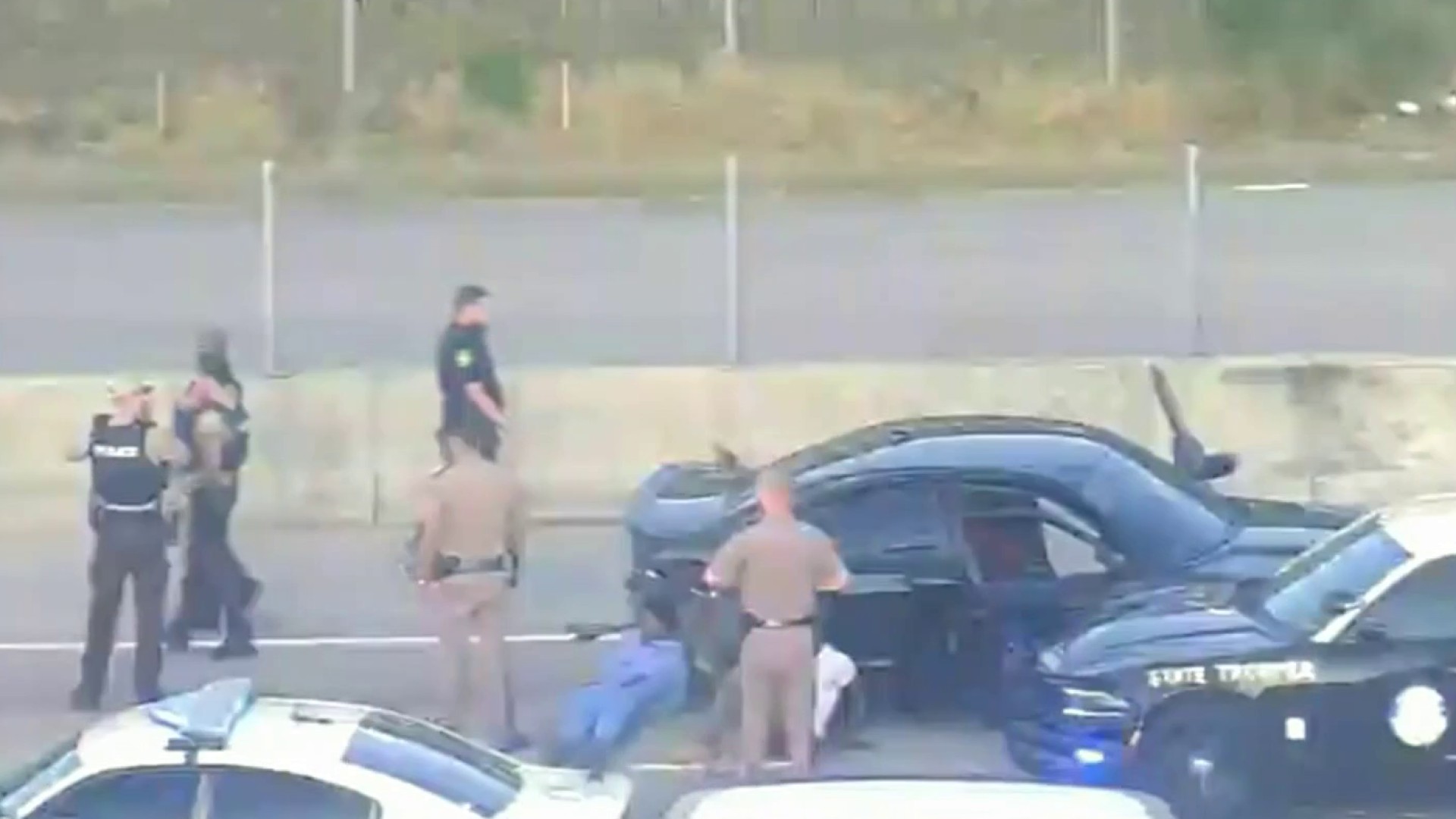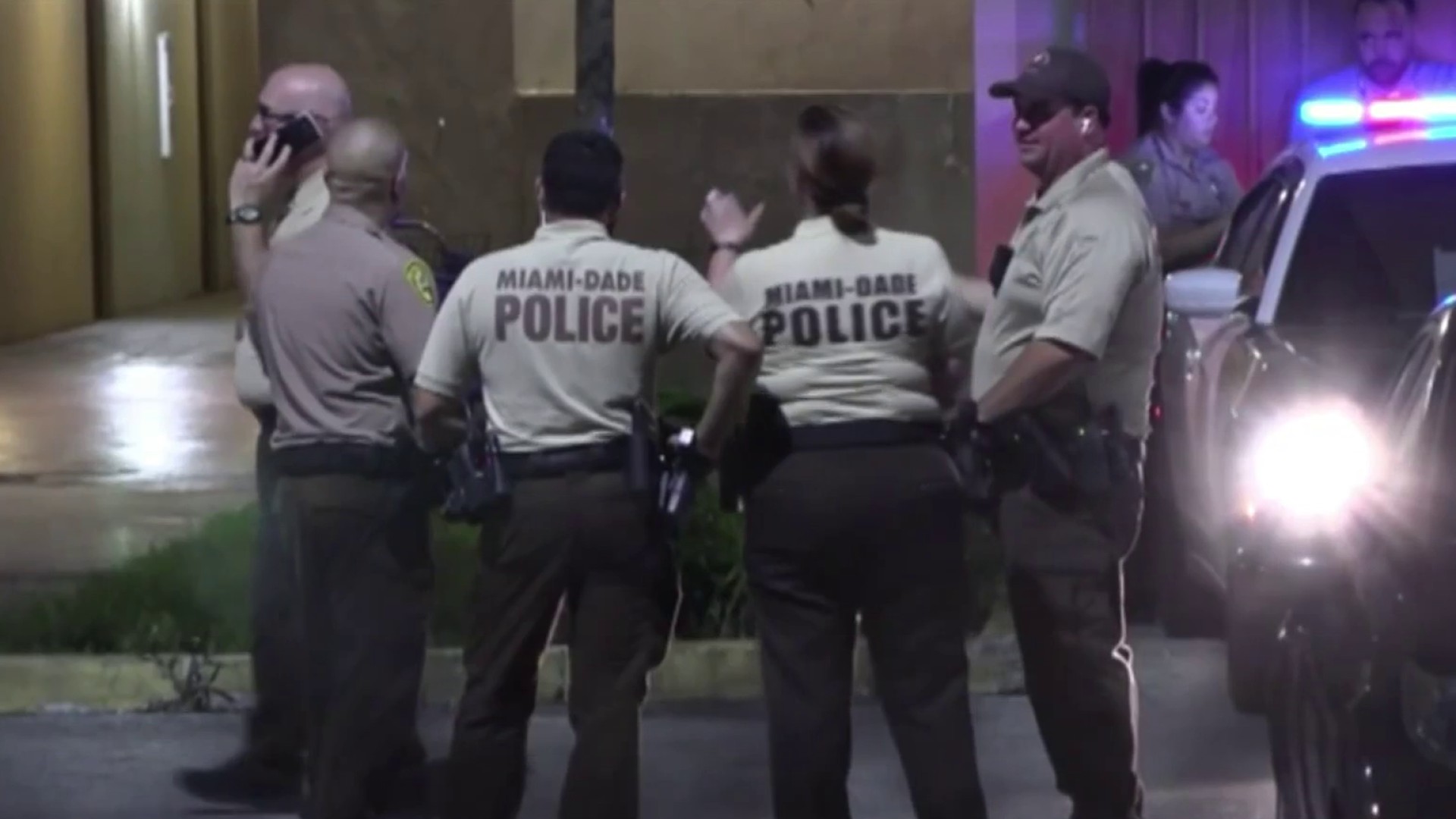Lady Justice is blindfolded, but she’d surely want to take a peek at this.
Sitting at a table in a Miami-Dade County judge’s chambers is Angel Sanchez, a former teenage gang-banger once so adept in breaking the law, now seeking to master it.
A judicial intern this summer for Circuit Judge Miguel de la O, Sanchez on a recent morning reviewed handwritten pleas for relief from prisoners who, like him years ago, are desperate for a second chance.
"Angel is my hero," de la O told the NBC 6 Investigators. "I haven’t met anyone like him."
Now 34, Sanchez’s life and his freedom are testament to his resilience and intelligence, a transformation that began in prison and has led so far to a 4.0 college grade-point average, an honors college education and a full-ride scholarship to the best law school that will accept him.
"That is my dream. That is my goal," Sanchez said of becoming a lawyer.
But, to even live this long, he had to dodge bullets in Allapattah and Little Havana.
Local
His rap sheet begins with a racketeering charge at age 11, followed in quick succession by arrests for attempted murder, aggravated battery and aggravated assault – all before age 15.
When he was 16, he participated in an attempted murder and armed robbery that resulted in a 30-year sentence imposed in 1999.
While in state prison, his father’s insistence he get an education finally took root -- in the law library.
Armed with only a ninth-grade education, Sanchez researched his case and discovered his sentence was illegal, scrawling petitions to the court that ultimately led to a successful appeal and his 30-year term being reduced to 15.
He was released in 2011, after 12 years in custody.
His father had died years earlier and a return to Miami, he reasoned, would only lead to trouble, a new crime, a violation of probation or death.
"I didn’t think I could be safe in my own neighborhood," he said. "I thought a better solution: How about if I leave it all together?"
So he took a leap, deciding to become homeless in Orlando, living in a Salvation Army shelter, trying desperately for months to get a minimum-wage job and almost giving up when it seemed no one would trust a felon with even the most menial of jobs.
But, as he was walking dejectedly out of another fast-food joint interview, the manager took a second look and saw something in Sanchez others did not – and gave him the job.
That allowed him to enroll in Valencia College.
Then, another obstacle.
He was told he couldn’t get financial aid without proof he enrolled with the Selective Service System when he was 18.
But Sanchez researched the law and found there was an exception for people who were incarcerated.
A Valencia financial aid manager, impressed with the documents Sanchez had assembled to prove he was, indeed, eligible for aid, decided to hire him.
So Flippin’ Burgers was out, and Sanchez began working for Valencia College.
For Sanchez, college life was a dream realized.
“All I would think to myself and privately to God is I need one chance. I will not blow this,” he said in a Valencia College video highlighting his successes. “I was so excited to be doing what I had dreamt of doing so often that the day-to-day struggles didn’t seem like anything to me.”
And he began mastering his classes, earning a 4.0 grade-point average.
When Jill Biden, the vice president’s wife, came to campus, he asked what she and the federal government could do to help homeless students across the country get the same benefits he was able to receive in Florida.
That caught the eye of Valencia President Sandy Shugart, who connected with Sanchez and helped guide him to even greater heights.
As he continued living in the shelter, working and studying, Sanchez applied for one of the nation’s most generous scholarships– the Jack Kent Cooke Foundation scholarship that covers up to $40,000 a year in undergraduate educational expenses.
And he got it.
It will cover up to $50,000 a year of his expenses once he gets into law school.
As he transforms his life, Sanchez is also committed to helping at-risk kids avoid the path that led him to prison.
At a recent conference for inner-city youth in Miami, Sanchez spoke their language, quoting Tupac Shakur lyrics, and telling harrowing stories from the streets and from prison.
The conference organizers, he told them, are “trying to get in the way between us and our bad decisions that can affect us for the rest of our lives.”
For some of them, as it was for him, respect means holding a handgun and being willing to use it.
“I say I understand because I was there,” he said in an interview after the presentation. “But I also say be patient: everything you’re going to get with that gun you’re going to lose tenfold afterwards.”
“Angel is my hero,” Judge de la O told the students at the conference. “He decided to change. … First of all he decided he was going to work on his own case, he educated himself, he became a paralegal in jail, in prison, wrote his own appeals and got his sentence reduced.”
In a poignant twist, it is the felon who inspires the judge.
“I haven't met anyone like him and it keeps my faith going that I know that, even when I sentence sometimes people to prison, it can give them an opportunity to change,” de la O said in an interview.
Now, he’s back in Orlando, completing his last semester at the University of Central Florida honors college before moving on next year to law school.
During a lunch break from de la O’s chambers this summer, he walked on the street where, nearly 18 years ago, an armed buddy riding shotgun in his 1967 Impala opened fire on a rival gang member, hitting only the rivals’ car – but producing attempted murder convictions for both the shooter and the driver -- Sanchez.
“This is not something that I intended to turn out into a shooting,” he said. “But I think it doesn’t take much reach of imagination to know that it would eventually lead to that.”
For all Sanchez has accomplished, he’s still a convicted felon and needs restoration of his civil rights before he can become a lawyer.
That requires years of effort and, ultimately, approval by the governor and cabinet, sitting as the state clemency board -- something few violent felons ever achieve.
But de la O is confident, vowing, “I will see him standing in front of me as a lawyer…. I will be with him every step of the way. I’ll be there at the clemency hearing. I will be writing the letters to the governor and I will be testifying on his behalf.”
The most compelling testimony, though, will come from Sanchez himself.
Gazing at a mark on a Little Havana wall -- the scar, he said, from a bullet that missed him when he was 13 -- Sanchez reflected: “I think the most frightening thing is how much potential I've realized today, how much I'm achieving, what turnaround I've made -- none of this would be true had this bullet not missed.”
And he knows others were not so fortunate.
“I think about how many bullet holes like those haven't missed and ended some great lives that could have had some great potential realized.”



